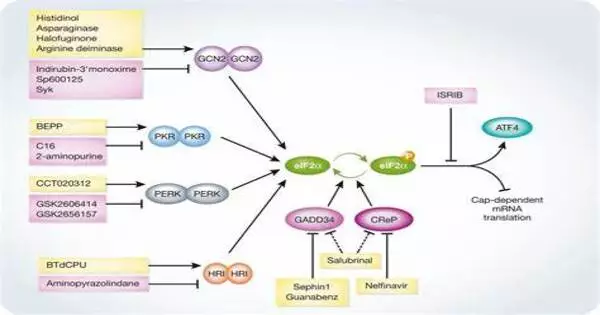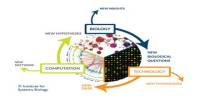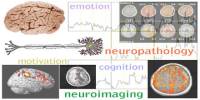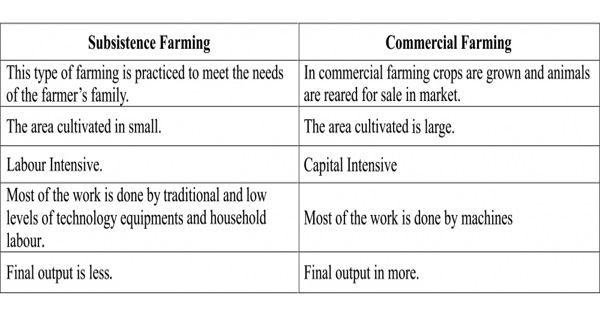The integrated stress response is a cellular stress response conserved in eukaryotic cells that reduces protein synthesis while increasing the expression of specific genes in response to internal or external stresses. It is a cellular signaling pathway that responds to various stressors such as nutrient deficiency, viral infections, and other cellular insults.
The ISR’s primary function is to assist cells in adapting to stressful conditions and promoting cell survival. It is a complex network of signaling events involving the phosphorylation of several important proteins.
Background
Extrinsic or intrinsic conditions can activate the integrated stress response within a cell. Hypoxia, amino acid deficiency, glucose deficiency, viral infection, and the presence of oxidants are examples of extrinsic factors.
Endoplasmic reticulum stress, caused by the accumulation of unfolded proteins, is the primary intrinsic factor. It has also been discovered that oncogene activation can trigger the integrated stress response. The integrated stress response either causes the expression of genes that repair the damage caused by the stressful conditions, or it causes a cascade of events that leads to apoptosis, which occurs when the cell cannot be brought back into homeostasis.
Key components of the Integrated Stress Response include:
- eIF2α (eukaryotic translation initiation factor 2 alpha): This protein is essential for the start of protein synthesis. eIF2 is phosphorylated during stress, resulting in a global decrease in protein synthesis. This decrease in protein synthesis conserves cellular resources by redirecting energy to stress response mechanisms.
- ATF4 (activating transcription factor 4): ATF4 is a transcription factor that is activated by eIF2 phosphorylation. It causes the expression of genes involved in stress response, amino acid metabolism, and other adaptive pathways to be activated.
- CHOP (C/EBP homologous protein): Another transcription factor induced by the Integrated Stress Response is CHOP. Under prolonged or severe stress conditions, it promotes apoptosis (programmed cell death), which aids in the elimination of damaged cells.
- GCN2 (general control nonderepressible 2): GCN2 is a kinase that phosphorylates eIF2 in response to a lack of amino acids. GCN2 activation plays a role in the cellular response to nutrient stress.
The Integrated Stress Response (ISR) is an evolutionarily conserved pathway found in eukaryotic cells that is essential for maintaining cellular homeostasis during stress. While the ISR is generally a protective mechanism, it has been linked to a number of diseases, including neurodegenerative disorders, metabolic diseases, and certain cancers.
















